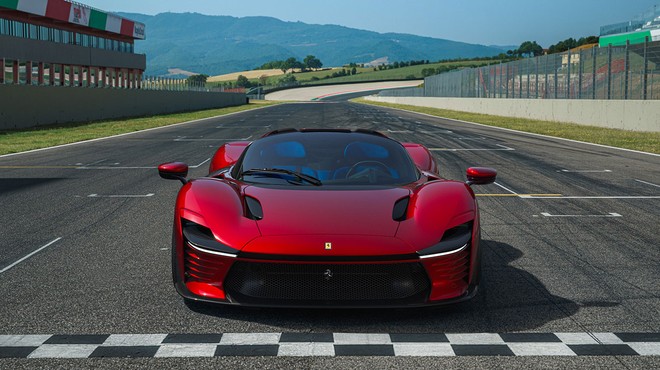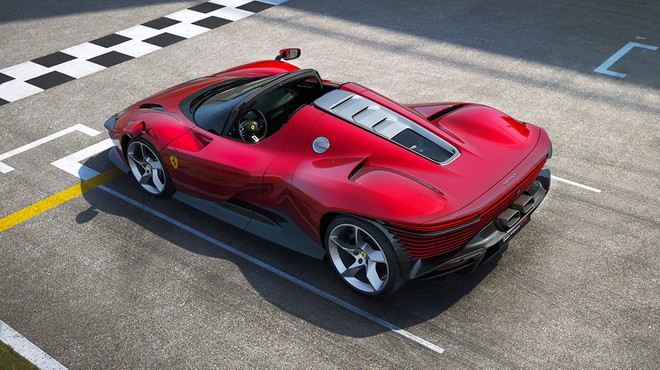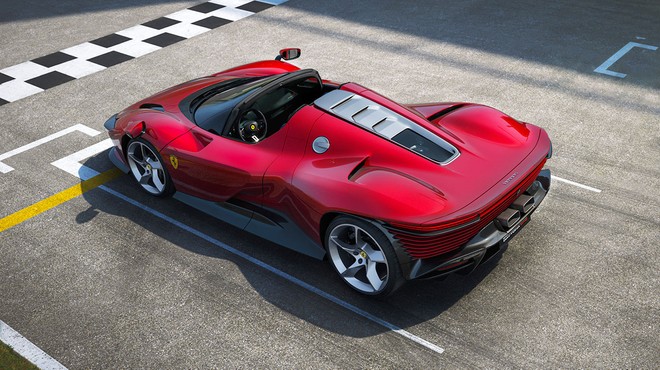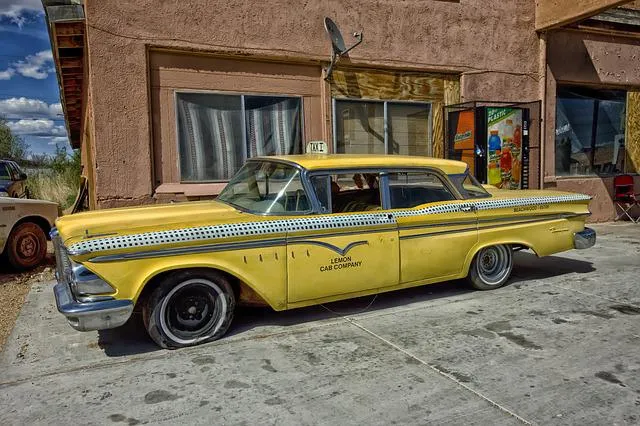There is always a great emotion when Ferrari presents its new car. And if this supercar is a special limited edition model of the “Icona” family, it soon becomes clear that it is a car destined to leave its mark. Let’s talk about the new Ferrari Daytona SP3, a supercar inspired by the world of 1960s Sports Prototypes. The presentation took place at the Mugello international racetrack, as part of the 2021 Ferrari World Finals.
The “Icona” series was born in 2018 with the Ferrari Monza SP1 and SP2, cars inspired by the racing boats of the 1950s. A few years later, the Daytona SP3 arrives, destined to become a new point of reference. They will be built alone 599 specimens already all gone sold. The price? 2 million euros.
TRIBUTE TO THE PAST
As previously mentioned, Ferrari drew inspiration from the racing cars of the 1960s to create the design of its new supercar.
The cabin with the wraparound windshield of the Daytona SP3 takes on the appearance of a dome set in a sensual sculpture whose fenders, equally sinuous, emerge decisively. The general balance is emphasized by the monolithic aspect of the volumes that communicate the manufacturing ability typical of the Italian bodywork. The sensation is that of being in front of an object where the fluidity of the masses is combined with more incisive surfaces in order to create that aesthetic balance that has always characterized the history of the Maranello company.
The 330 P3 and P4 that were the protagonists of the 1967 Daytona 24 Hours were the inspiration for the Prancing Horse technicians. Also from the world of Sports Prototypes comes the choice to equip the car with one “Targa” type bodywork with a removable hardtop. The rear-view mirrors are located forward of the doors, another strong reference to the Sports Prototypes of the 1960s.
Obviously, there has been a great deal of care in the development of aerodynamics.
New components, such as the extraction chimneys on the bottom, make the Daytona SP3 the most aerodynamically efficient Ferrari without active appendages produced to date.
Among the most interesting solutions adopted to achieve the goal of maximum aerodynamic efficiency, that of integrating the air boxes into the wingspan doors. A choice that allows you to channel the air towards the radiators on the side. The surface of the door helps manage the flow of air from the wheel well.
Then we note the “flattened” front which is characterized by the presence of small fins at the ends of the bumper that allow improving the aerodynamic flow. In the back, characterized by the presence of horizontal lines that make the look even more particular, we find a huge carbon extractor. The tailpipes have been positioned higher just to make room for the extractor. The bottom of the supercar has been carefully studied with the aim of increasing the aerodynamic load as much as possible.
Also for the interior, the Ferrari Daytona SP3 draws inspiration from Ferraris such as the 330 P3 / P4, the 312 P, and the 350 Can-Am. We find a minimal design, leather and carbon fiber finishes, and seats integrated into the body. To remind us, however, that this is a modern car, the presence of digital instrumentation.
ENGINE V12
Beating heart of the Ferrari Daytona SP3, a 6.5-liter V12 engine based on that of the 812 Competizione relocated, however, in the central-rear position to optimize the intake and exhaust layout, as well as the fluid dynamics efficiency. The optimization work made it possible to create the most powerful internal combustion engine developed by Ferrari to date. He’s called F140HC and is capable of delivering 840 hp (618 kW) and 697 Nm of torque. The red zone starts at 9,500 pm. The engine is combined with a 7-speed dual-clutch gearbox.
Particular attention was paid to reducing the weight and inertia of the engine through the adoption of titanium connecting rods and other solutions. The performances, of course, are very high. Their top speed exceeds 340 km / h. It takes just 2.85 seconds to go from 0 to 100 km / h, while it takes just 7.4 seconds to reach 200 km / h from a standstill.





